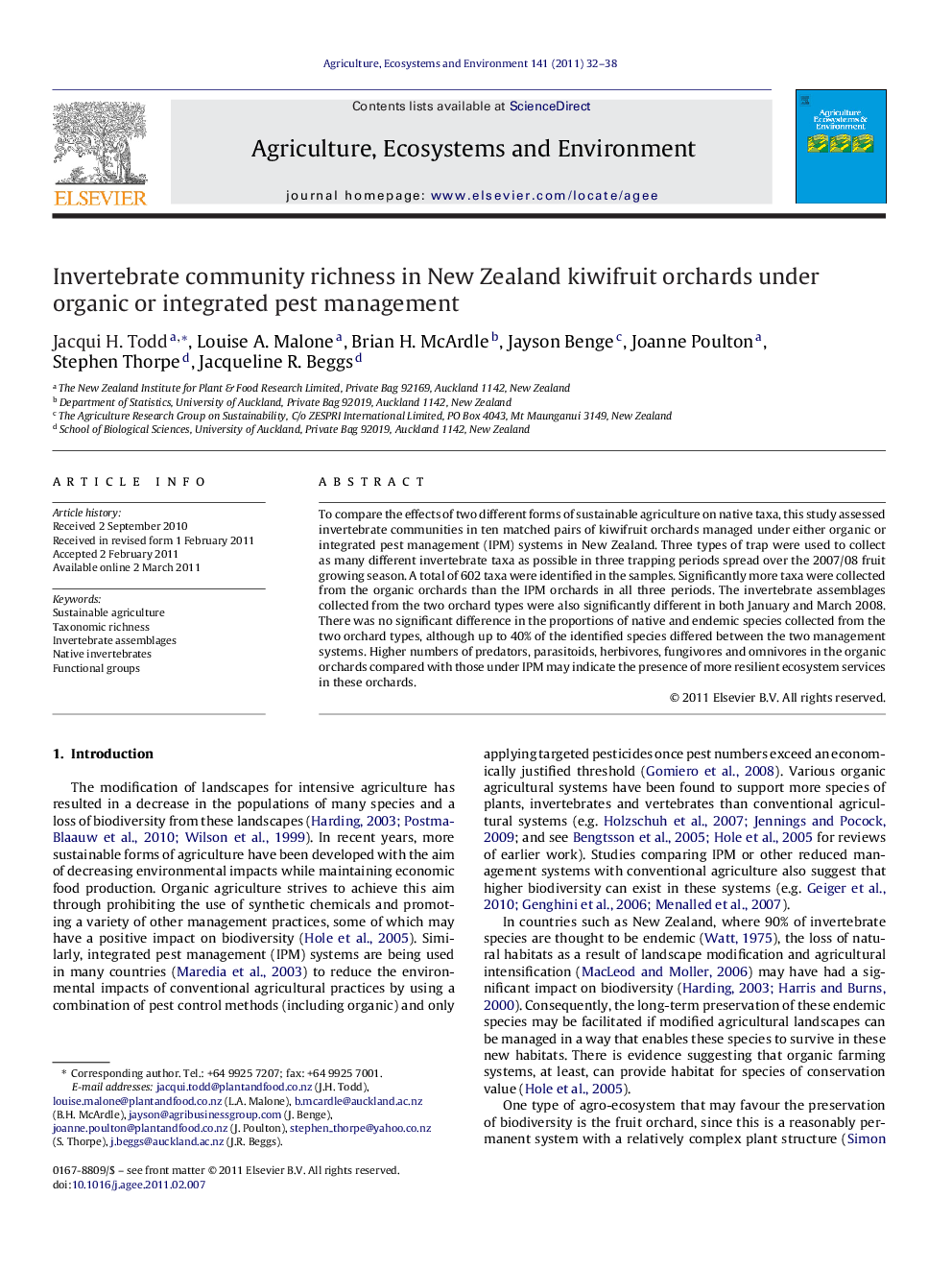| Article ID | Journal | Published Year | Pages | File Type |
|---|---|---|---|---|
| 2414628 | Agriculture, Ecosystems & Environment | 2011 | 7 Pages |
To compare the effects of two different forms of sustainable agriculture on native taxa, this study assessed invertebrate communities in ten matched pairs of kiwifruit orchards managed under either organic or integrated pest management (IPM) systems in New Zealand. Three types of trap were used to collect as many different invertebrate taxa as possible in three trapping periods spread over the 2007/08 fruit growing season. A total of 602 taxa were identified in the samples. Significantly more taxa were collected from the organic orchards than the IPM orchards in all three periods. The invertebrate assemblages collected from the two orchard types were also significantly different in both January and March 2008. There was no significant difference in the proportions of native and endemic species collected from the two orchard types, although up to 40% of the identified species differed between the two management systems. Higher numbers of predators, parasitoids, herbivores, fungivores and omnivores in the organic orchards compared with those under IPM may indicate the presence of more resilient ecosystem services in these orchards.
Research highlights► There was a higher taxonomic richness of functional groups in organic than in IPM orchards ► More predators, parasitoids, herbivores, fungivores, and omnivores occurred in organic than in IPM orchards
